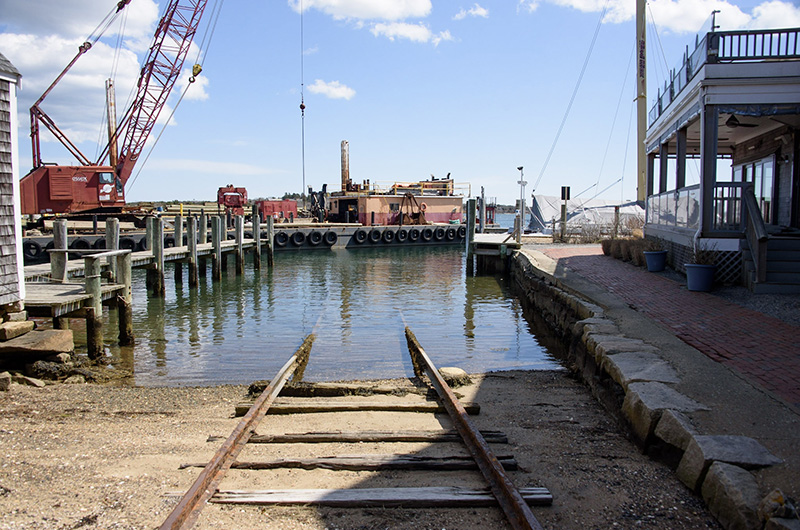Every day at noon next week church bells will ring 40 times in West Tisbury and Vineyard Haven, to remind people around the Island of the goal to become carbon neutral by 2040.
The bell-tolling is one part of Climate Action Week, a series of events put on by the Martha’s Vineyard Commission to engage Islanders in planning for the effects of climate change. Nearly 40 events will be hosted by various organizations across the Vineyard from May 9 to May 14.
Liz Durkee, the MVC climate change planner, along with the commission’s climate action task force and an army of volunteers across the Island, are all collaborating to put on the events.
“When it comes to climate resilience, it’s all hands on deck. Every one of us has to take action,” Ms. Durkee said.
The week is part of the MVC’s broader goal to develop a climate action plan. The plan brings together six focus areas — land use and natural resources, food security, infrastructure and transportation, public health and safety and economic resilience and energy — to chart a course of action against the impacts of climate change over the next 20 years. The plan is set to be completed in June, and people will be able to share what they think should be in it at a wrap-up event to end the week. The week of events will focus on educating Islanders about climate change while showing them different ways they can help chip away at the problem, Ms. Durkee said. At each event there will be a pledge sheet people can sign to commit to doing what they just learned about.
Climate change requires immediate attention around the world but presents particular challenges to the Island, Ms. Durkee said. Sea level rise and flooding put the Island’s coastal infrastructure at imminent risk. Catastrophic weather events could cut off the ferry or curtail access to the hospital.
The impacts of climate change are going to affect every aspect of Island life — from the natural environment to the economy, Ms. Durkee said. The interconnection is daunting but it also provides Islanders a chance to rethink the future and shape priorities.
“We can make opportunities out of these challenges,” Ms. Durkee said. “Maybe our economy needs to evolve to a point where it’s not so focused on beach recreation, but it’s more focused on other things like the creative economy . . . agriculture, our history, our beautiful architecture and eco-tourism.”
For Joan Malkin, chairman of the MVC and a member of the climate action task force, some of the events are meant to pique people’s interest first and educate second. There is a two-for-one deal on a dozen oysters at the Menemsha Fish Market where people can learn that the mollusks are a low-carbon emitting source of protein.
“People will feel like hey, I want to do that. And if they incidentally learn something about climate change, I think that is a big accomplishment,” Ms. Malkin said.
The events are also meant to empower people who may feel helpless to do anything about climate change, Ms. Malkin said. There is a talk by two psychologists about eco-anxiety, a term used to describe the negative feelings many people experience when considering the scope of the climate problem. “There’s a deep-seated anxiety about this hopelessness,” Ms. Malkin said. “To recognize that and to start to work to overcome it and to have tools that you can share so people can cope better with those feelings, I thought that was important.”
And a good way to cope with those feelings is to take action, Ms. Durkee said.
“One of the things that the professionals say about eco-anxiety is that the best thing you can do to address your anxiety is to take action because it makes you feel more empowered,” Ms. Durkee said.
A complete list of events for Climate Action Week appears online at thevineyardway.org/posts/event, and in a full color insert in this week’s print edition.








Comments (6)
Comments
Comment policy »